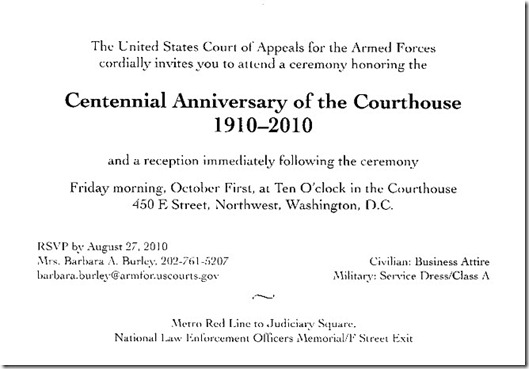It appears that Denedo’s case is over. On 8 September 2010, the Court of Appeals for the Armed Forces, with C.J. Effron and J. Baker dissenting, denied the filing of a writ appeal petition out of time. The majority writes:
In support of the motion for leave to file writ-appeal petition out of time, Denedo’s counsel explained that he “erroneously believed that this case was governed by Rule 19(a)(1)(B),” which provides sixty days from the date of the decision at the CCA for filing a petition for review with this court.
Appellate defense counsel requests this court suspend Rule 19(e) pursuant to our authority under C.A.A.F. Rule 33, which states “[f]or good cause shown, the Court may suspend any of these rules in a particular case, on application of a party or on its own motion, and may order proceedings in accordance with its direction.” In our view, neither the fact of the previous Supreme Court review of Denedo’s case, nor the Padilla case are relevant to our analysis as to whether there was good cause for a late filing. Counsel’s claim that he erroneously believed that this court imposed a sixty day deadline for the appeal of writ-appeal petitions does not provide us with the requisite good cause for suspending the deadline for filing a writ-appeal.
 Court-Martial Trial Practice Blog
Court-Martial Trial Practice Blog


